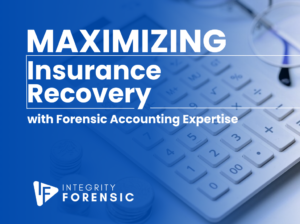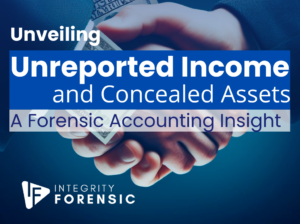Forensic accountants possess a formidable weapon in their arsenal known as lifestyle analysis. This investigative technique plays a pivotal role in uncovering hidden assets and income sources. By meticulously scrutinizing an individual’s income, expenses, assets, and liabilities, forensic accountants can detect disparities and anomalies that may indicate the presence of undisclosed wealth. In this blog post, we will explore the concept of lifestyle analysis and delve into the techniques employed by forensic accountants to expose financial discrepancies. Through a comprehensive examination of the bank deposits method, expenditures method, and asset method, we will uncover the secrets that lie beneath the surface.
Understanding Lifestyle Analysis:
At its core, lifestyle analysis involves a thorough assessment of an individual’s financial profile, including income, expenses, assets, and liabilities. By identifying gaps or inconsistencies, forensic accountants can unveil evidence suggesting that an individual’s reported income or net worth does not align with their lifestyle. For instance, if someone’s known income sources and liquid assets are insufficient to support their standard of living, it raises suspicions of undisclosed income or hidden assets.
The Techniques Used by Forensic Accountants:
To expose the presence of unreported cash and estimate the extent of undisclosed income, forensic accountants utilize various forensic accounting methodology techniques, including:
Bank Deposits Method:
This technique is based on the assumption that all funds are either deposited or spent. By meticulously analyzing bank deposits, canceled checks, currency transactions, and accounting for cash payments from undeposited currency receipts and nonincome cash sources (such as gifts, loans, insurance proceeds, and inheritances), forensic accountants can determine the total funds from unknown sources. By deducting funds from known sources, they can arrive at an estimate of the undisclosed income.
Expenditures Method:
Also referred to as the “source and application of funds method,” the expenditures method involves scrutinizing an individual’s personal sources and uses of cash over a specific time period. Sources of funds may include salaries, inheritances, loans, gifts, and cash on hand at the beginning of the period. If an individual’s expenditures exceed their reported income, the excess likely represents unreported income.
Asset Method:
The asset method, also known as the “net worth analysis method,” operates under the assumption that any unexplained increase in an individual’s net worth signifies unreported income. Forensic accountants begin by estimating the person’s net worth using bank and brokerage statements, real estate records, loan and credit card applications, and other relevant documents. By determining the increase in net worth during the relevant time period and deducting reported income and known expenditures, forensic accountants can identify the excess amount, which represents income from unknown sources.
Tracing Hidden Assets and Funds:
While proving the existence of unreported income is one aspect, tracing that income to concealed assets or accounts is another challenge, especially when individuals actively attempt to hide their wealth. To uncover these hidden assets, forensic accountants extensively examine a wide range of documents, including tax returns, bank records, real estate records, insurance policies, and court filings. Additionally, valuable insights may be gleaned from loan applications, employment applications, credit reports, and interviews with individuals familiar with the person’s finances, such as accountants, real estate agents, or business partners. Tax returns, in particular, serve as a valuable investigative tool, as they provide clues about assets or income that someone may be trying to conceal.
Conclusion:
Proving, quantifying, and tracing unreported income and hidden assets can be a complex undertaking, especially when individuals actively employ tactics to conceal their wealth. However, forensic accountants possess the skills and experience necessary to read the signs and unearth hidden financial resources, thereby increasing the likelihood of a satisfactory resolution in legalproceedings. Through meticulous analysis and the integration of various techniques, forensic accountants play a crucial role in exposing the truth and ensuring a fair and just outcome. By following the money and employing lifestyle analysis, these professionals shed light on hidden income and assets, leaving no stone unturned in their pursuit of financial transparency.
Our team at Integrity Forensic comprises highly skilled forensic accountants ready to provide you with expert assistance. Contact us today for a complimentary consultation by dialing 855-673-9999, or feel free to reach out to us via email at questions@integrityforensic.com. We look forward to addressing your needs and helping you navigate the complex world of forensic accounting.





